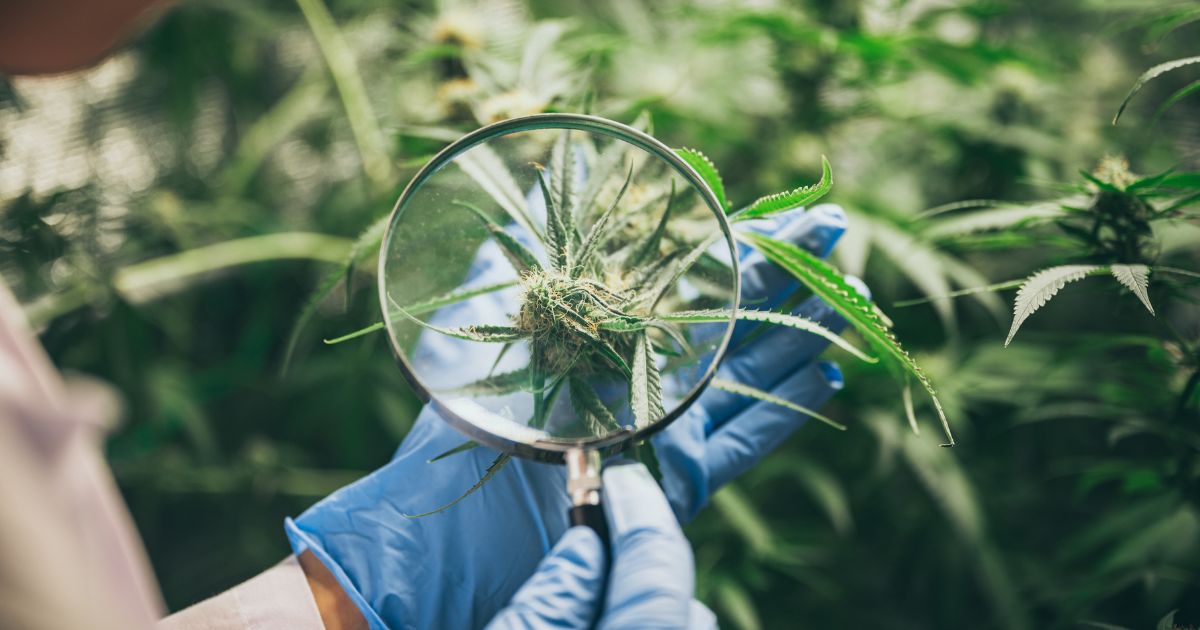The University of Mississippi has officially concluded its role as the sole federal supplier of research-grade cannabis after more than five decades.
The National Institute on Drug Abuse (NIDA) recently canceled its longstanding partnership with Ole Miss, marking the end of an era that began in 1968, as first reported by Cannabis Wire.
This significant shift represents a major milestone in cannabis research history. For over 57 years, Ole Miss maintained an exclusive monopoly on federally approved marijuana cultivation, serving as the primary source for cannabis used in scientific studies across the United States.
The university’s National Center for Natural Products Research became synonymous with government-sanctioned cannabis research during this extended period.
The End of an Exclusive Partnership
Jacob Batte, director of news and media relations at Ole Miss, confirmed the development in a statement to Marijuana Moment. “NIDA has chosen not to award the current year task order to the University of Mississippi for cannabis production,” Batte explained.
While the university maintains two years remaining on its federal contract through 2028, no new orders will be placed.
The cancellation comes despite Ole Miss’s substantial investment in cannabis research infrastructure. The university recently opened a new Resource Center for Cannabis and Cannabinoid Research earlier this year, demonstrating its continued commitment to advancing scientific understanding of the plant.
Expanding Research Opportunities
The decision to end Ole Miss’s exclusive arrangement reflects changes in federal cannabis policy. The Drug Enforcement Administration (DEA) has gradually expanded the pool of institutions authorized to cultivate research-grade cannabis, responding to longstanding calls from politicians and public health experts for more diverse and intensive study opportunities.
Currently, seven DEA-approved “bulk manufacturer marijuana growers” hold federal licenses to produce cannabis for research purposes.
This expansion aims to provide researchers with greater variety in cannabis products and potentially improve overall quality compared to the limited options previously available through the single-source system.
The shift addresses historical criticisms of the federal research program. Many scientists have expressed concerns about the quality and potency of cannabis supplied through the Ole Miss facility, arguing that these limitations hindered meaningful research into the plant’s therapeutic potential and effects.
Quality Concerns and Scientific Limitations
Research cannabis quality has been a persistent issue throughout the Ole Miss partnership. Scientists frequently complained that the federally approved marijuana lacked the diversity, potency, and quality found in state-legal cannabis markets. These concerns raised questions about the relevance of research findings to real-world cannabis use.
An Ole Miss study published late last year attempted to address these criticisms by reporting that cannabis produced at the university was “very similar” to products available in legal markets, as reported by Marijuana Moment.
However, many researchers remained skeptical of these findings, pointing to years of documented quality issues and inconsistent THC potency levels.
The limited variety of cannabis strains and products available through the federal program also constrained research scope. Scientists studying specific cannabinoid profiles, terpene combinations, or consumption methods often found themselves working with materials that didn’t reflect the diversity of products used by patients and consumers in legal states.
Earlier this year, DOGE terminated another University of Mississippi contract that involved monitoring cannabinoid content in cannabis seized by law enforcement agencies.
Continuing Research Efforts
Despite losing the NIDA production contract, Ole Miss says it remains committed to cannabis research through multiple ongoing initiatives.
The university continues to operate its National Center for Natural Products Research, the recently established National Center for Cannabis Research and Education, and the Resource Center for Cannabis and Cannabinoid Research.
These continued efforts demonstrate that Ole Miss intends to maintain its position as a leading institution in cannabis research, even without its exclusive federal production contract. The university’s decades of experience and established infrastructure position it well to contribute to expanding research opportunities in the evolving cannabis landscape.
Future of Federal Cannabis Research
The termination of Ole Miss’s production contract raises important questions about the future of federally supported cannabis research.
With multiple DEA-licensed growers now available, NIDA has greater flexibility in sourcing research materials, potentially leading to improved quality and variety in available cannabis products.
This transition occurs as the DEA continues to consider rescheduling marijuana under federal law, which could significantly expand research opportunities.
However, the rescheduling process remains paused, with no recent progress reported in administrative proceedings.
Moving Forward
As the cannabis research landscape continues to evolve, the end of Ole Miss’s exclusive federal partnership represents both an ending and a beginning. While the university’s role in government-sanctioned cannabis research has for now seems to be concluded, new opportunities for scientific advancement are emerging through expanded licensing and evolving federal policies.
The transition from a single-source system to multiple authorized producers reflects growing recognition that cannabis research requires diverse, high-quality materials to generate meaningful scientific insights.
This shift could ultimately benefit researchers, patients, and consumers by enabling more comprehensive studies of cannabis’s therapeutic potential and safety profile.
The University of Mississippi’s decades of experience and continued commitment to cannabis research ensure that it will remain an important contributor to scientific understanding, even as the research landscape becomes more diverse and competitive.
The knowledge and expertise developed during the partnership will continue to inform future research efforts and policy decisions.




















